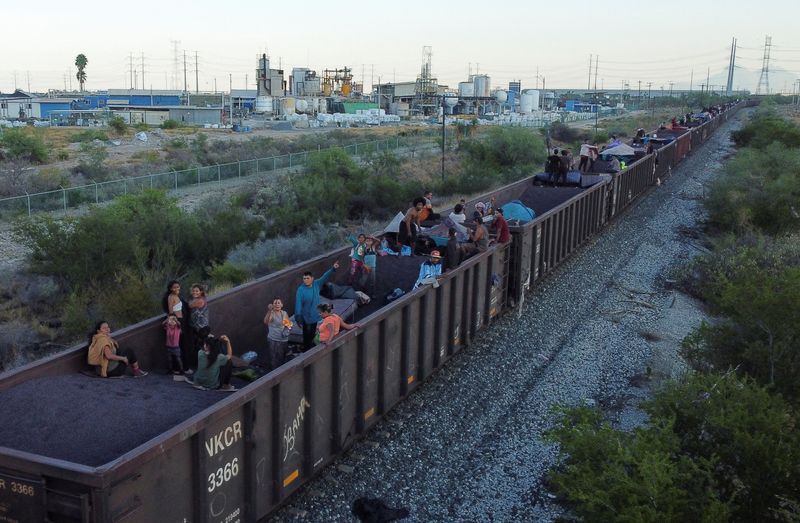By Jose Cortes
HUEHUETOCA, Mexico (Reuters) - Several dozen migrants retreated in frustration from train tracks outside Mexico City on Friday, blocked by Mexican officials from hitching rides on cargo wagons in a major new enforcement effort to curb the flow of people headed north.
Thousands of people have reached the northern border in recent days and crossed into the United States, many after taking dangerous journeys on freight trains known as "The Beast."
Mexican railroad operator Ferromex this week suspended 60 trains due to the influx of people, and Mexico's National Migration Institute (INM) has deployed agents to dissuade people from climbing aboard.
At a railway alongside a trash dump in Huehuetoca, a town north of Mexico City, some 40 INM agents in more than a dozen vans drove alongside the tracks to cut off access to migrants, and sent up a drone to locate others who had scrambled into the surrounding hills.
"They forced us away from the rail," said Jason, a Venezuelan migrant who asked to be identified only by his first name. "We have no other options anymore."
Migrants carrying backpacks and jugs of water made their way through tall grass under the hot sun to retreat on foot to the nearest town.
INM on Friday said it would work with Ferromex, owned by conglomerate Grupo Mexico, to identify strategic points to dissuade migrants from riding the trains, which it said puts lives at risk.
Despite the dangers of clambering aboard car roofs or huddling inside open-air wagons, many migrants say they cannot afford other options, and fear extortion on the highways or being sent by migration agents back to southern Mexico.

Milagros Narvaez, also from Venezuela, said the INM officers told the migrants they had to turn back, and that she was desperate after already struggling for nearly a month to find a way to the northern border.
"It's been an odyssey to be here in Mexico," she said. "We want to take the train to get to the border and cross into the United States... Wherever the train takes us, wherever they will give us asylum."